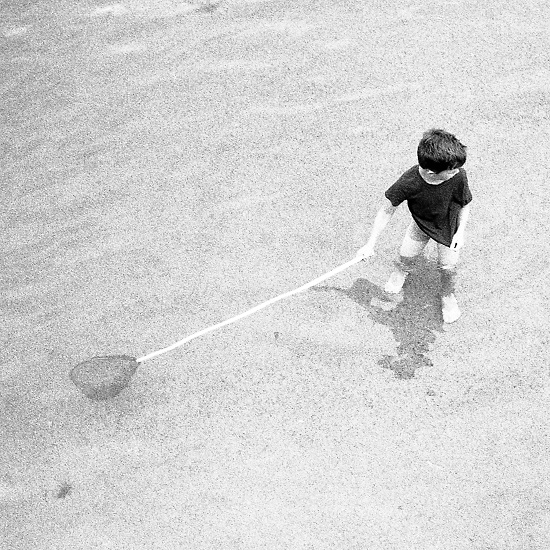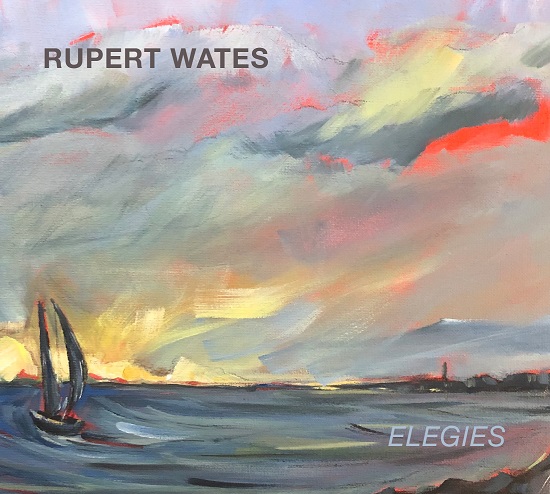
How many songs by Scottish bands feature the word “rain”? ‘Raintown’, ‘Tinseltown in the Rain’, ‘Why Does it Always Rain on Me?’, and that’s before we even get to Dean Owens’ brilliant ‘Raining in Glasgow’ and all the rest. There’s a reason for that, of course, the same reason why ‘The Flood’ opens with the song ‘Edinburgh Rain’. The message isn’t always negative; rain has the power to clear the air and “Wash my blues away”.
Wayward Jane (Dan Abrahams, Sam Gillespie, Rachel Petyt and Michael Starkey) is an interesting idea, combining the basic elements of an Appalachian string band with some traditional Scottish folk influences. The end result is an original sound that’s somewhere between a string band , folk troubadour and ceilidh band mixing the influences subtly to create a sound that’s best described by the title of one of the instrumentals, ‘Doucement’ which translates as gently or softly. Wayward Jane take some of the harder edges away from the string band and soften them with Sam Gillespie’s wooden flute playing and laid-back performances.
The album’s a mixture of songs and instrumentals, mainly originals, but with the addition of a couple of reworkings, one the traditional song ‘Little Satchel’ and the other a fairly traditional string band version with lovely four-part harmonies of ‘Shake Sugaree’, the Elizabeth Cotten song that’s becoming an Americana standard.
To come back to that rain, the album has a watery theme running through it, including the banjo and fiddle-led ‘Didn’t It Rain’, telling the all-too-familiar story of catastrophic weather events in the Southern states. There are also three pieces back-to-back in the middle of the album with aquatic themes; ‘Crossing Over Water’ begins with two guitars and builds with fiddle and banjo to four-part instrumental harmony before Rachel Petyt comes in with a very traditional folk vocal, ‘The Flood’ is a typical string band instrumental giving all the players a chance to demonstrate their skills and ‘Down by the River’ has a country feel with unison banjo and fiddle and lovely harmonies.
What makes ‘The Flood’ so original is the varying textures created by the playing and the range of vocal styles. The instruments are used in every possible combination (particularly with the addition of wooden flute) to make each piece distinctive. It’s a lovely album with pleasant surprises wherever you turn.
‘The Flood’ is out now on ‘Down The River Records’ (WJ003) and you can still see the band at these tour dates.
Here’s the video of ‘Crossing Over Water’:

Bear with me while I get the nostalgia bit out of the way. There was a time in the 1970s when singer-songwriters from the folk world could become massive, making singles and albums that charted and selling out 2,000 capacity venues armed with only an acoustic guitar (usually a Gibson or a Martin at that time). It wasn’t just the odd one or two either; there was strength in depth as well. We had Ralph McTell, John Martyn and Richard Thompson (among others) in the UK and North American continent had Gordon Lightfoot, James Taylor and Neil Young (when he wasn’t squeezing squalls of feedback out of Old Black. Rupert Wates would have fitted in perfectly with his virtuoso finger-style guitar and mix of traditional and modern lyrical themes. Skip forward five decades and folk music’s a minority interest again. Which is why I have such a great admiration for artists like Rupert Wates. He does what he does in the knowledge that it’s a labour of love and that’s pretty common in certain areas of today’s music business.
The eleven songs on ‘Elegies’ are love songs but, as the title implies, they all convey a sense of loss as well. The musical stylings reflect the lyrical content of the songs; the more traditional folk-style lyrics tend to have fairly conventional guitar stylings while the contemporary lyrics lean towards a jazz feel, particularly when Trifon Dimitrov joins the party on double bass. Of the traditional lyrical songs, ‘Guinevere’ is based on ‘Malory’s ‘Morte d’ Arthur’ with hints of the Robin Hood legend, ‘Lady of the Glades’ is based on Keats’ ‘La Belle Dame Sans Merci’ and ‘Across the Water’ derives from Tennyson’s ‘Lady of Shalott’. ‘The Storm’, with its high-register vocal, is inspired by Poe and Coleridge and builds and darkens musically to reflect the ominous oncoming weather. ‘The Man Who Worked in Clay and Stone’ has a more modern feel and arrangement underpinning a message that you should be careful what you wish for because ultimate beauty is ultimately sterile.
Of the more modern lyrics, ‘Cathy’ is a love song with a smoky jazz club feel enhanced by the double bass, and ‘We’ll Go Dancing’ is a love song set in Paris that also hints at the speakeasy era of the 1930s in the States. It’s a mark of Rupert Wates’ craft that he’s able to create such a variety of moods with one or two guitars, occasional double bass and vocal.
‘Elegies’ is Rupert Wates’ twelfth album and it demonstrates perfectly why he’s an award-winning songwriter and performer. He’s a genuine virtuoso acoustic guitar player who plays with the kind of subtlety that you won’t be hearing on mainstream radio any time soon. If you’re in the UK and you want to see and hear him play, he has one UK date at The Cabbage Patch in Twickenham on Sunday October 1st.


